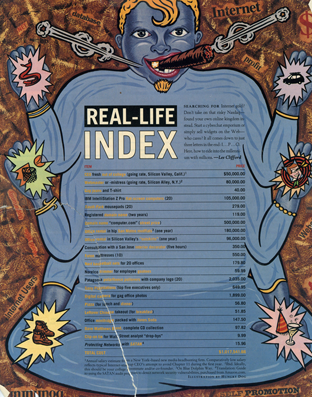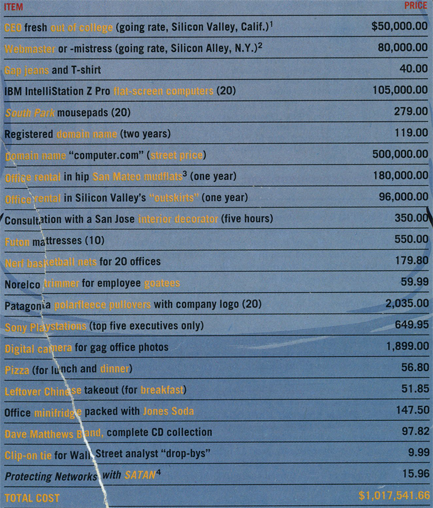I went to a BarCamp at a conference last night. I ended up talking to a group of people who deal with big companies and IT tools. I’m surprised at how IT decisions are made, and the shaky ground that they’re based on. This, of course, causes lots of awful problems.
Companies used to exist based on the skills of the people behind them. It was 100% human operation — being able to process and manage the information about the company, and make good decisions on it. Now, it seems like a company’s ability to exist and function is based on the ability to represent their information cleanly and accurately in a computer system.
Lots of companies seem to buy premade software that does what they need, with *just a little* customizing. Which an outside consultant (ie: not familiar with the business) will do.
What kills me is that this means paying for lots of stuff that doesn’t get used, or gets used wrong. The software itself is more expensive to develop up front, not to mention the costs of maintaining, upgrading, and lost productivity because things don’t work right.
Imagine a large software product like a busy restaurant kitchen. Different parts of the system are running all over the place, grabbing different things, changing them in various ways, and sending them out to the user. Now imagine that same busy kitchen with a big box of camping gear dumped in the middle of the room, in case someone needs the Camping 2.0 featureset. And a box of hoses, in case you need Water 3.5 compatibility. Next thing you know, garden hose is wrapped around the ankle of the head chef; he’s spilling the bouillabaisse on the soux chef (who was hiding in a tent); and it takes forever just to get some eggs and toast. Which you are grateful for when it finally arrives.
It’s a waste of resources, and has nothing on a kitchen where everyone knows exactly where everything is, and can move around cleanly.
Bringing this back to software, it’s why there are enterprise (“expensive”) systems out there that can only support 8 concurrent users on a server at one time. If I delivered a product that used a whole computer for 8 people, just to display some bits of text, I would fire myself and get a job at the M&M factory putting them in alphabetical order.

The whole point of this technology crap is to make things that make you more effective. Force multipliers, they call them. We need to make damn good force multipliers. That’s the only way anything is worth anything anymore. The most accurate rifleman equipped with a watergun will be much less effective than a jittery guy with a good rifle and scope.
You’re only as good as your tools.


